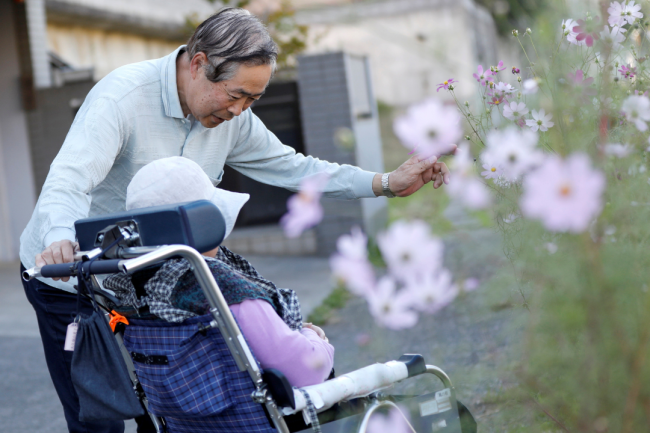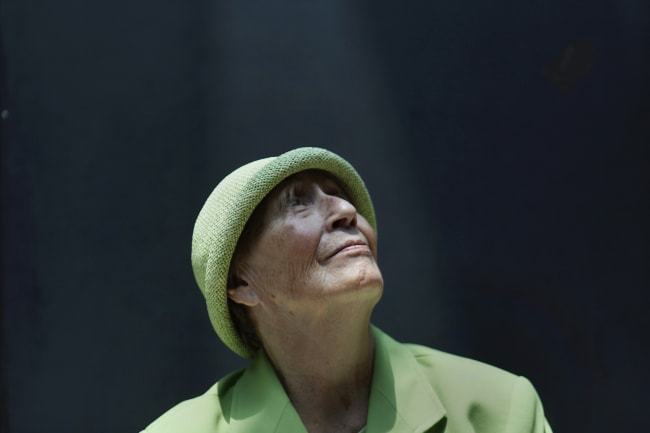As people live longer all around the world, the number of individuals with dementia is increasing dramatically. In 2019, the Global Burden of Disease Study showed that there were more than 57 million people living with dementia globally—roughly the population of Italy. In the same year, the world spent nearly the equivalent of Poland's GDP on health care for people with dementia—more than $590 billion. As the number of people who are living with dementia grows, more families will struggle to provide high-quality care for their loved ones at reasonable costs and policy makers will need to prioritize providing quality and affordable care for people affected by dementia.
In 2019, there were more than 57 million people living with dementia globally—roughly the population of Italy
The vast majority of global spending on people with dementia occurs in high-income countries, but the majority of people living with dementia live in low- and middle-income countries. In 2019, almost nine out of every ten dollars spent on dementia were spent in high-income countries. The cost disparity between patients in high- and low- and middle-income countries can be explained in part by the care options available to them.
In high-income countries, when caring for someone with dementia becomes too taxing for close family and friends, patients and their families often turn to nursing homes. However, nursing homes are a costly alternative, and family members often report immense guilt and remorse when leaving their loved ones at such facilities. While seeking care outside the home is not an ideal solution, it can offer some respite to caregivers who are also juggling demanding careers and tending to children and other family members.
Spending on Dementia Care Per Capita By Country, 2019
In many countries around the world, nursing homes are not a viable option due to any number of factors that may include lack of access, cost, or because nursing homes are not the social norm. For example, in India, it is nearly impossible for families to turn to nursing homes or care centers when their loved ones need care around the clock. In a recent study, C.T. Sudhir Kumar and colleagues reported there are only 20 daycare centers and 30 full-time residential centers that cater to the needs of people with dementia in India, the second-most populous country in the world. And in South Africa, where dementia is not covered by insurance policies, patients and their families carry the heavy financial, health, and emotional burden of dementia care alone.
The alternative to caring for dementia patients in nursing homes is attending to them at home, which is also far from a perfect solution. Dementia care is expensive for families and demanding for home caregivers. It consists predominantly of helping people with activities of daily living.
Friends and family members often have to make difficult choices between meeting their own needs and caring for their loved ones. No matter what option they choose, they face financial, social, and psychological stressors that have an impact on their physical and mental health. In the United Kingdom, family caregivers report losing up to 75 percent of their income, giving up work hours in order to care for loved ones with dementia. And in Kenya, the majority of caregivers report not knowing how to best care for family members living with dementia. In extreme cases, some admit hiding loved ones with dementia from their communities in order to protect the family and the patient from the stigma associated with a dementia diagnosis.

By 2050, the number of people with dementia is expected to more than double. Providing care for this population could account for nearly one out of every five dollars spent on health globally, posing major challenges to those affected by the disease and for their loved ones. Health systems, already grappling with labor shortages, will strain to keep up. So, too, will governments as health care costs rise. Policy makers around the world need to prioritize providing sustainable and appropriate care for people with dementia. Dementia should become a policy priority in line with the World Health Organization (WHO) action plan, which aims to preserve the quality of life of individuals with dementia and their caregivers.
Forecasted Number of People Living with Dementia Globally, by 2050
The WHO recommends keeping people at home whenever possible because this aligns with the wishes of people affected with dementia. Our research shows that costs are lower when patients are cared for at home. However, we were not able to capture the cost of family members' unpaid labor and the opportunity cost of caring for their loved ones.
When people with dementia are cared for at home, they and their caregivers need support as they navigate difficult times. For example, as dementia progresses, patients need more and more help with medical appointments, transportation, and activities of daily living such as dressing, toileting, and bathing. Home caregivers often neglect their own needs to make sure the needs of their loved ones are met. For these reasons, the WHO recommends providing financial and emotional support to home caregivers.
In 2019, almost nine out of every ten dollars spent on dementia were spent in high-income countries
For instance, China sought to address the emotional toll that the COVID-19 pandemic had on caregivers. Caregivers developed exhaustion and burnout symptoms just a month after lockdowns and strict social-distancing measures were implemented as part of the Chinese government's zero-COVID strategy. In response, multidisciplinary teams in China offered counseling services free of charge to people living with dementia and their caregivers. These interventions align with the recommendations from Alzheimer's Disease International to advocate for protecting the physical and mental health of dementia patients and those who care for them.
After loved ones receive a dementia diagnosis, families often scramble to provide care. Most people living with dementia will need a team of caregivers around the clock. This is neither easy nor affordable, and it poses major challenges to families, such as finding appropriate care, managing their finances, and navigating the health-care system while coming to terms with the repercussions of a dementia diagnosis. Whether people decide to care for their family members at home or in a nursing home, it represents a substantial financial commitment. It is urgent to prioritize providing quality dementia care at affordable prices to ensure patients have access to the best available care while protecting their caregivers from burnout, isolation, and financial hardship.
EDITOR'S NOTE: The author is employed by the University of Washington's Institute for Health Metrics and Evaluation (IHME), which leads the Global Burden of Disease study and produced the global dementia prevalence forecasts described in this article. IHME collaborates with the Council on Foreign Relations on Think Global Health. All statements and views expressed in this article are solely those of the individual author and are not necessarily shared by their institution.













